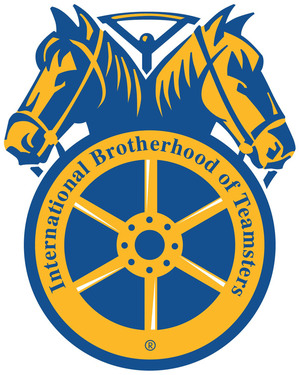Arguments in case arising from 2017 concrete strike presented to Supreme Court Justices on January 10, 2023
WASHINGTON, Jan. 13, 2023 /PRNewswire/ -- It was a big week for Teamsters Local 174, and the American Labor Movement as a whole, as attorneys for Local 174 presented oral argument before the United States Supreme Court in a case with far-reaching potential implications for workers' right to strike. The case stems from a 2017 strike by members of Teamsters Local 174 against Glacier Northwest/CalPortland, which lasted for eight days and successfully won a contract for Teamster members at five concrete companies. The case, Glacier Northwest, Inc. d/b/a CalPortland v. International Brotherhood of Teamsters Local Union No. 174, Case No. 21-1449, addresses whether federal labor law permits employers to sue unions in state courts for ordinary product losses that result from employee work stoppages.
The company's position is that it should be allowed to sue the Teamsters in Washington state courts for the losses it incurred after drivers returned their concrete mixer trucks to the company's care, with the drums running, and then walked off the job to begin a strike – a federally protected and fundamental right for workers in the fight to improve wages, benefits, and working conditions. Glacier later disciplined the drivers who had concrete in their trucks at the time the strike began and returned to the yard without delivering it to customers, leading Local 174 to file an Unfair Labor Practice (ULP) against the company.
Despite the drivers' clearly protected strike conduct and the pending ULP charge against the company, Glacier argues that Local 174 "intentionally destroyed" its property – because the company was unable to deliver the concrete without its drivers, and ended up disposing it at a loss. If the Court were to agree with Glacier's theory, employers could sue unions or individual workers for the ordinary and inevitable result of workers exercising their right to strike. The harm this would cause to the entire Labor Movement would be incalculable, and would provide a windfall for employers.
"We are confident the Supreme Court will recognize that these companies' dream of saddling unions with the costs of their own refusal to bargain in good faith has no basis in the law," said Teamsters Local 174 Secretary-Treasurer Rick Hicks. "But, make no mistake – no matter how the Court rules in the specific case before it, we will never stop fighting for our members' rights, and taking those fights to the street when necessary to obtain better wages and working conditions."
Legal Background:
The 1935 National Labor Relations Act (NLRA) clearly protects workers' rights to strike, regulates the lawful limits of strike tactics, and protects unions from liability for the economic damage caused by those strikes. In fact, the right to engage in such strikes is at the core of the Act. The NLRA also gives the National Labor Relations Board (NLRB) the exclusive authority to adjudicate labor disputes, including those arising from strikes. As the Supreme Court recognized in a 1959 decision called San Diego Building Trades Council v. Garmon, so long as the conduct is at least "arguably" protected or prohibited by the NLRA, employers and unions must wait for the NLRB to resolve the case before they can bring state court lawsuits based on the same conduct.
This deference to the NLRB's labor expertise is called "preemption." Under Garmon, Glacier's state court suit is obviously preempted. Glacier's challenge of Garmon amounts to a frontal assault on the century-old right to strike and on the Court's 60 years of settled law, giving the NLRB the first crack at resolving labor disputes.
As usual, the Teamsters have put up a major fight against corporate attempts to trample our rights. In addition to the oral arguments presented on January 10, Local 174 submitted a brief to the Supreme Court, as did multiple 'friends of the court,' including the State of Washington and 14 other states and the District of Columbia, which argued in favor of maintaining Garmon's deference to the NLRB. The Teamsters' brief also notes that Garmon is firmly grounded in the language of the NLRA and the intent of Congress when it drafted the Act.
A final decision from the Supreme Court is expected sometime in the spring.
Founded in 1909, Teamsters Local 174 represents 8,600 working men and women in Seattle and the surrounding areas. "Like" us on Facebook at www.facebook.com/TeamstersLocal174.
Contact:
Jamie Fleming, (206) 441-6060
[email protected]
SOURCE Teamsters Local 174

WANT YOUR COMPANY'S NEWS FEATURED ON PRNEWSWIRE.COM?
Newsrooms &
Influencers
Digital Media
Outlets
Journalists
Opted In



Share this article